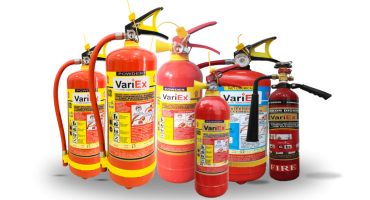Top Fire Alarm Systems for Small Homes in 2024
For small homes and apartments, compact and cost-effective fire alarm systems often provide the necessary protection without taking up too much space or requiring complex installations. Here are some of the best fire alarm systems for small homes, with features tailored to smaller living areas.
Table: Comparison of Best Fire Alarm Systems for Small Homes
| Fire Alarm System | Key Features | Price Range | Pros | Cons |
|---|---|---|---|---|
| Kidde Battery-Operated Smoke Alarm | Simple setup, compact design | $15-25 | Low cost, reliable detection | Limited features, basic |
| First Alert SCO5CN Combination Alarm | Smoke and CO detection | $30-40 | Dual protection in one unit | Requires regular battery checks |
| Google Nest Protect | Smart alerts, app notifications | $100-120 | Smart capabilities, self-testing | Higher upfront cost |
1. Kidde Battery-Operated Smoke Alarm
- Description: The Kidde Battery-Operated Smoke Alarm is an affordable option for those looking for basic protection in a small home. It’s easy to install and operates on batteries, which means no wiring is required.
- Pros: Low cost, reliable smoke detection, suitable for small spaces.
- Cons: Lacks advanced features and smart connectivity.
2. First Alert SCO5CN Combination Alarm
- Description: This alarm combines smoke and carbon monoxide detection in one unit, making it ideal for apartments or small homes where space is a concern. It operates on battery power and is simple to install.
- Pros: Offers dual protection (smoke and CO), affordable, compact design.
- Cons: Battery replacement is necessary to maintain functionality.
3. Google Nest Protect
- Description: The Google Nest Protect is a smart smoke and CO detector that connects to a mobile app, allowing you to receive alerts even when you’re not at home. It also has a voice alert feature to announce the location of potential hazards.
- Pros: Smart connectivity, real-time alerts, and a self-testing feature for ease of maintenance.
- Cons: Higher upfront cost, requires Wi-Fi and a smartphone for full functionality.
Best Fire Alarm Systems for Large Homes in 2024
Large homes typically require more extensive fire alarm systems that can provide comprehensive coverage across multiple rooms and levels. Interconnected or smart systems with enhanced features are often the best choice for larger residences to ensure all areas are monitored. Below is a table of top fire alarm systems for larger homes.
Table: Comparison of Best Fire Alarm Systems for Large Homes
| Fire Alarm System | Key Features | Price Range | Pros | Cons |
|---|---|---|---|---|
| First Alert Hardwired Smoke Alarm | Interconnected, battery backup | $35-45 | Reliable, wide coverage | Professional installation needed |
| Google Nest Protect | Smart system, Wi-Fi enabled | $100-120 | App notifications, dual protection | Expensive for multiple units |
| X-Sense Home Security System | Wireless connectivity, interconnected alarms | $150-200 | Wide coverage, customizable alerts | Higher initial investment |
1. First Alert Hardwired Smoke Alarm
- Description: The First Alert Hardwired Smoke Alarm is designed for homes that need interconnected protection. This system connects through wiring, meaning all alarms sound if one detects smoke, ensuring comprehensive coverage across large spaces.
- Pros: Reliable hardwired connection, battery backup in case of power outages, and broad coverage across large homes.
- Cons: Installation typically requires a professional, which can add to the cost.
2. Google Nest Protect
- Description: The Google Nest Protect also performs well in larger homes. Since it is Wi-Fi enabled, you can place units across different floors and receive mobile alerts if there’s a problem. The system provides voice alerts for each room and location-specific notifications.
- Pros: Smart functionality, mobile notifications, dual detection (smoke and CO).
- Cons: Costly if multiple units are required, as each unit is priced individually.
3. X-Sense Home Security System
- Description: This wireless, interconnected system is ideal for large homes as it can cover multiple rooms and floors. It’s customizable, allowing you to add additional alarms as needed, and it features smart alerts and voice prompts.
- Pros: Wide coverage, flexible to add more units, customizable notifications.
- Cons: Higher initial investment; may be unnecessary for smaller spaces.
Key Factors to Consider When Choosing a Fire Alarm System
When selecting the best fire alarm system for your home, consider the following factors to ensure that you choose the most suitable system based on your home’s size and your specific needs:
- Coverage and Range
- For large homes, interconnected systems are essential for whole-house coverage. These systems ensure that alarms in all parts of the house sound simultaneously, providing quick alerts across all areas.
- Smart Features and Connectivity
- Smart fire alarms connect to mobile apps, allowing you to receive real-time notifications. This feature can be particularly valuable for homeowners who travel or have larger properties, as they can monitor their alarm systems remotely.
- Power Source and Battery Backup
- Hardwired alarms are ideal for large homes but should have battery backups to stay operational during power outages. Battery-operated alarms are more common in small homes, though many now include long-life or rechargeable batteries.
- Ease of Installation
- Battery-operated alarms are simple to install, while hardwired systems may require a professional electrician, especially in large homes. Smart alarms are typically user-friendly and come with app installation guides.
- Budget and Long-Term Costs
- Consider both the upfront costs and the maintenance expenses. Smart alarms and interconnected systems can have a higher initial cost, but the enhanced safety and convenience may be worth it for larger homes.
How to Install and Maintain Your Fire Alarm System
Installation Tips
- Battery-Operated Alarms: These are straightforward to install, typically using screws or adhesive mounts. Place them near bedrooms, kitchens, and areas prone to smoke or fire risk.
- Hardwired Alarms: Professional installation is recommended for these alarms, especially in larger homes. Place them strategically on each floor and in high-risk areas.
- Smart Alarms: Follow the manufacturer’s instructions to connect the alarm to your Wi-Fi network and smartphone. Ensure that all units are synced and functioning properly.
Regular Maintenance for Optimal Performance
- Battery Replacement: Regularly replace the batteries in battery-operated alarms or use models with a long-life battery.
- Testing: Test each alarm monthly by pressing the test button. Many smart alarms perform automatic tests, but manual checks are still recommended.
- Cleaning: Keep alarms dust-free to prevent malfunction. Gently vacuum around the alarms or use a soft brush.
When to Replace Your Fire Alarm System
- Fire alarms typically last between 7 and 10 years. If your alarms are outdated or showing signs of wear, it’s time to replace them with newer models. Smart and interconnected systems may also need periodic software updates to maintain optimal functionality.
Pros and Cons of Smart vs. Traditional Fire Alarms
Benefits of Smart Alarms
- Real-Time Alerts: Receive instant notifications on your phone if the alarm detects smoke or CO.
- Remote Monitoring: Monitor your alarm system from anywhere, ideal for large properties or frequent travelers.
- Voice Alerts: Announce specific locations of danger for quick response.
Benefits of Traditional Alarms
- Simplicity: Basic alarms are easy to use and maintain, without needing Wi-Fi or apps.
- Cost-Effective: Lower upfront costs compared to smart alarms.
- Reliability: Dependable for small homes without additional connectivity needs.
Conclusion
Choosing the right fire alarm system depends on your home’s size, layout, and your specific needs. For smaller homes, simple, battery-operated alarms or combination alarms are effective and affordable. Larger homes benefit from interconnected or smart systems, which provide comprehensive coverage and convenience. Regular maintenance and testing are essential to ensure your fire alarms are ready to protect your home and family at all times.










